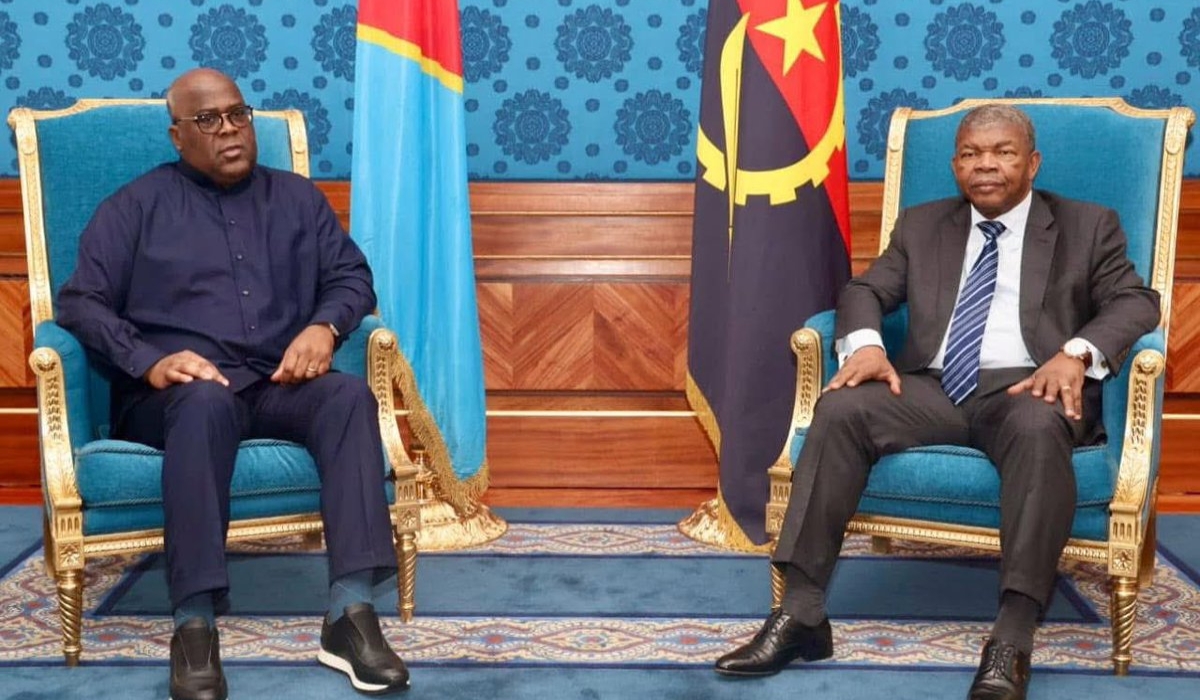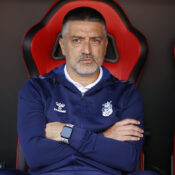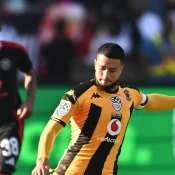
DR Congo-M23 government discussions are scheduled for March 18
Angola’s presidency said in a statement on Wednesday, March 13, that direct peace negotiations between the Congolese government and the AFC/M23 rebels would begin in Luanda on March 18.
After Congolese President Felix Tshisekedi, who had long opposed the idea of having direct talks with the rebels, visited his Angolan counterpart João Lourenço on Tuesday, March 11, the potential of the meetings was first made public.
Government troops were forced to evacuate or surrender after M23 rebels, who are affiliated with the Alliance Fleuve Congo (AFC), seized control of Goma and Bukavu, two important cities in the eastern Democratic Republic of the Congo, in late January and February.
The rebel organization has consistently been left out of previous rounds of peace negotiations on the DR Congo problem. Angola, however, stated on Tuesday that the two parties had decided to meet at the bargaining table.
The Angolan presidency declared in a statement that “delegations from the Democratic Republic of Congo and the M23 will begin direct peace talks on March 18 in the city of Luanda, following the steps taken by the Angolan mediation.”
M23 leader Bertrand Bisimwa stated in a post on X that the only reasonable way to end the current issue is through negotiations.
Bisimwa stated: “We are committed to defeating Mr. Tshisekedi’s military option and bringing him, willingly or by force, to the negotiating table, the only civilized option to resolve the current crisis that has lasted for decades.”
Eastern DR Congo has been unstable for decades due to persistent governance failures, corruption, and broken promises. According to Bertrand Bisimwa, deputy coordinator of the AFC/M23 rebellion, the government in Kinshasa has not only failed to dismantle the “more than 200 armed groups ravaging our land,” but has frequently actively encouraged their existence for political and financial gain.
The rebel movement is working for governance that protects all Congolese residents, upholds fundamental human rights, and tackles the underlying causes of war. Among other evils, it has pledged to eradicate the genocide mindset, corruption, nepotism, and tribalism that are pervasive in the Democratic Republic of the Congo.
In 2021, the massive Congolese government army coalition began fighting the M23 rebels. This coalition included the FDLR, a terrorist militia based in the Democratic Republic of the Congo that was founded by the masterminds of the 1994 Genocide against the Tutsi, over 10,000 Burundian troops, 1,600 European mercenaries, South Africa-led SADC forces, and UN peacekeepers.
The rebels have joined the Alliance Fleuve Congo (AFC), a broader rebel group formed in December 2023 and headed by Corneille Nangaa, the former head of the national election commission (CENI) of the Democratic Republic of the Congo.
Kigali has denied the Congolese government’s allegation that Rwanda is aiding M23 rebels. The majority of the rebels were originally members of the Kinyarwanda-speaking Congolese population, which has been persecuted by its own government for decades, despite having Rwandese ancestry or culture.
Their rebel movement began as a result of discrimination and targeted ethnic violence committed by successive Congolese administrations who wanted to deport them by labeling them Rwandans.
Finding a method that resolves political disputes amicably is crucial to ending the current crisis in the Democratic Republic of the Congo, as President Paul Kagame and other regional leaders have stressed.
Kagame stated in a recent interview that although a flawless solution might not be possible right away, fighting must end to make room for procedures that deal with the conflict’s underlying roots. In the eastern DR Congo, he outlined a three-step plan for peace. According to Kagame, the route involves putting an end to the current conflict and establishing a peaceful process that settles the political issues by acknowledging the concerns of the rebellion and having Kinshasa acknowledge Rwanda’s security concerns and take action “because they are based in Congo and in fact, they’ve been associated with the Congolese government.”
Kigali has often emphasized that Rwanda is extremely concerned about the security threats presented by the FDLR and its affiliates.
Because of this, the Rwandan government has made the decision to keep up defensive measures along the DR Congo border as long as the Congolese army (FARDC) and its allies, including the genocidal militia, pose a threat to national security.
Additionally, Kigali wants the Congolese government to answer for “its continued preservation of FDLR,” which includes integrating it into its army, arming it with advanced weaponry, and employing it as a combat force and ally.
What led the murderous militia to the Democratic Republic of the Congo?
The ex-FAR, politicians, and Interahamwe militia members who had committed the genocide fled in large numbers, armed, to eastern DR Congo, then known as Zaire, as the Rwanda Patriotic Army seized control and put an end to the genocide against the Tutsi in July 1994.
The Army for the Liberation of Rwanda (ALIR) was first formed by the remaining militia and army members of the overthrown genocidal regime.
They founded FDLR in 2000 to avoid or disassociate themselves from their heinous actions, shortly after the US government designated it as a terrorist organization for killing US tourists in Uganda’s Bwindi Forest.
The FDLR was founded on May 1, 2000, when its founders assembled in a spacious hall in Lubumbashi, the second-largest city in the southeast of the Democratic Republic of the Congo, which is located along the Zambian border.
The UN’s focus on M23 and “total silence on the humongous humanitarian violations committed across many parts” of DR Congo, including the massacres, rapes, and [rights] violations by CODECO, ADF, and other armed groups in Ituri, Beni, and South Kivu, are concerning, Rwanda’s Permanent Representative to the UN Ernest Rwamucyo told the UN Security Council on February 21.
The Congolese government’s persistent targeting and murder of unarmed Banyamulenge residents in Minembwe, Uvira, and the neighboring areas of South Kivu Province was again condemned by Bisimwa this week.
Sukhoi fighter jets hit Minembwe communities on Monday, he said, where there was “neither a frontline nor a battle.”
The Minembwe airstrip, which is only utilized for humanitarian and commercial purposes in this remote area where the FARDC and armed groups block all other roads, was one of the targeted locations. It is impossible for any Munyamulenge to go to Baraka, Fizi, or Uvira, much less Mwenga. This runway was the only way to transfer medicine, other necessary supplies, and evacuate the sick. A plane that is owned by my nation’s government has now damaged it.
“Does your silence not trouble you?” Bisimwa asked the Congolese government, other institutions, especially the Parliament, and the world community in response to his condemnation of “this situation.”
All Categories
Recent Posts
Al Ahly shows strong interest in Pimienta
Pirates lose to Chiefs in the Nedbank Cup final
Tags
+13162306000
zoneyetu@yahoo.com



